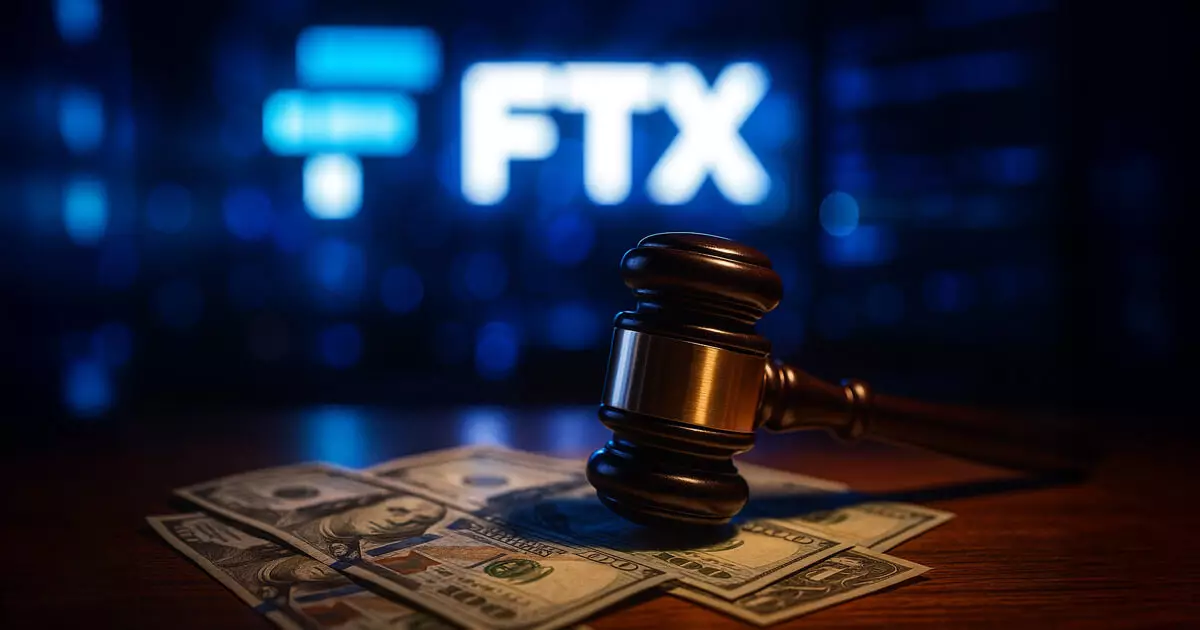The ongoing legal skirmish between FTX and the beleaguered Three Arrows Capital (3AC) highlights a critical aspect of financial markets: reckless risk-taking can have destructive repercussions. FTX’s legal team recently decried 3AC’s $1.53 billion claim as not only illogical but also potentially damaging to legitimate creditors in the wake of FTX’s bankruptcy. This scenario sheds light on the culture of excess and the failures of due diligence that persist in the cryptocurrency industry.
3AC’s decision to engage heavily with margin trading, particularly in an environment teetering on volatility, showcases a warning sign to investors. In June 2022, as the cryptocurrency market was roiling from the collapse of TerraUSD, 3AC’s failure to address margin calls is illustrative of a cavalier attitude that is all too common among high-stakes investors. When a firm opts to ignore its declining collateral requirements, it doesn’t just gamble on risk; it orchestrates its own downfall. The $120 million credit facility that 3AC took out from FTX was a ticking time bomb waiting to explode, having been thrust into liquidity challenges that ultimately undermined its viability.
Shifting the Blame Game
The assertion that FTX’s liquidation of 3AC’s account was unjustified touches on a broader frustration within financial ecosystems: the propensity to deflect accountability. In this case, 3AC appears to be attempting to bolster its claim not just as a financial matter but as a narrative to point fingers. FTX is adamant that their liquidation actions were not only warranted but necessary to curb extensive losses, protecting other stakeholders in the process.
This claim-reflection mirrors a troubling trend across many failed ventures where the burden of responsibility is shifted away from failing entities to external parties. By attempting to extract resources from a company that was already embroiled in its own insolvency, 3AC is calling into question the integrity of all parties involved. Are we witnessing the birth of a culture that promotes looking to others to bear the weight of one’s failures, rather than taking ownership of poor decisions?
Experts Weigh In: Analyzing the Financial Landscape
In the tumult surrounding the dispute, the input from industry experts adds another layer of complexity. Testimony from renowned consulting professionals, as well as legal opinions from notable branches of the law, have been leveraged to reinforce FTX’s position. By delineating the rationale behind the forced liquidation and dismissing 3AC’s legal theories, these experts frame the argument that accountability should rest on the shoulders of those who assumed risk imprudently.
This reliance on expert testimony in litigation is not merely procedural—it plays a crucial role in establishing normative legal standards in the face of chaos. The opinions render a critical backdrop that may serve to influence the court’s perception of responsibility, control, and the consequences of financial decision-making. As court dates loom nearer, the potential for a verdict that upholds accountability seems increasingly possible, adding nuances to the intricate web of claims and defenses that will test the fabric of these crypto giants.
The Broader Implications for Crypto Regulation
While the courtroom brawl between FTX and 3AC captures media attention, it serves as a clarion call for stricter regulations within the cryptocurrency sector. The ramifications of poor risk management practices, like those exhibited by 3AC, extend far beyond the immediate collateral damage inflicted on a handful of stakeholders. These are lessons imbued with broader implications that may precipitate calls for oversight among crypto exchanges to prevent such fiscal irresponsibility.
A balanced approach to governance could mitigate rampant speculation and ill-judged investments. Regulating parties need to impose clear guidelines that require better risk assessment practices among firms engaging in margin trading, thus fostering a marketplace less susceptible to such reckless behaviors. Meaningful reform could support a healthier ecosystem where entities prioritize resilience over fleeting gains, ensuring the long-term viability of the investor landscape.
The enduring outcome of the FTX versus 3AC saga may resonate well beyond the courtroom, potentially reshaping the contours of financial strategy and regulation in the crypto domain for years to come.

